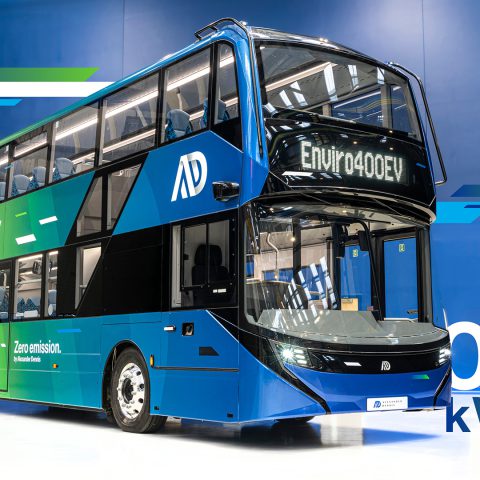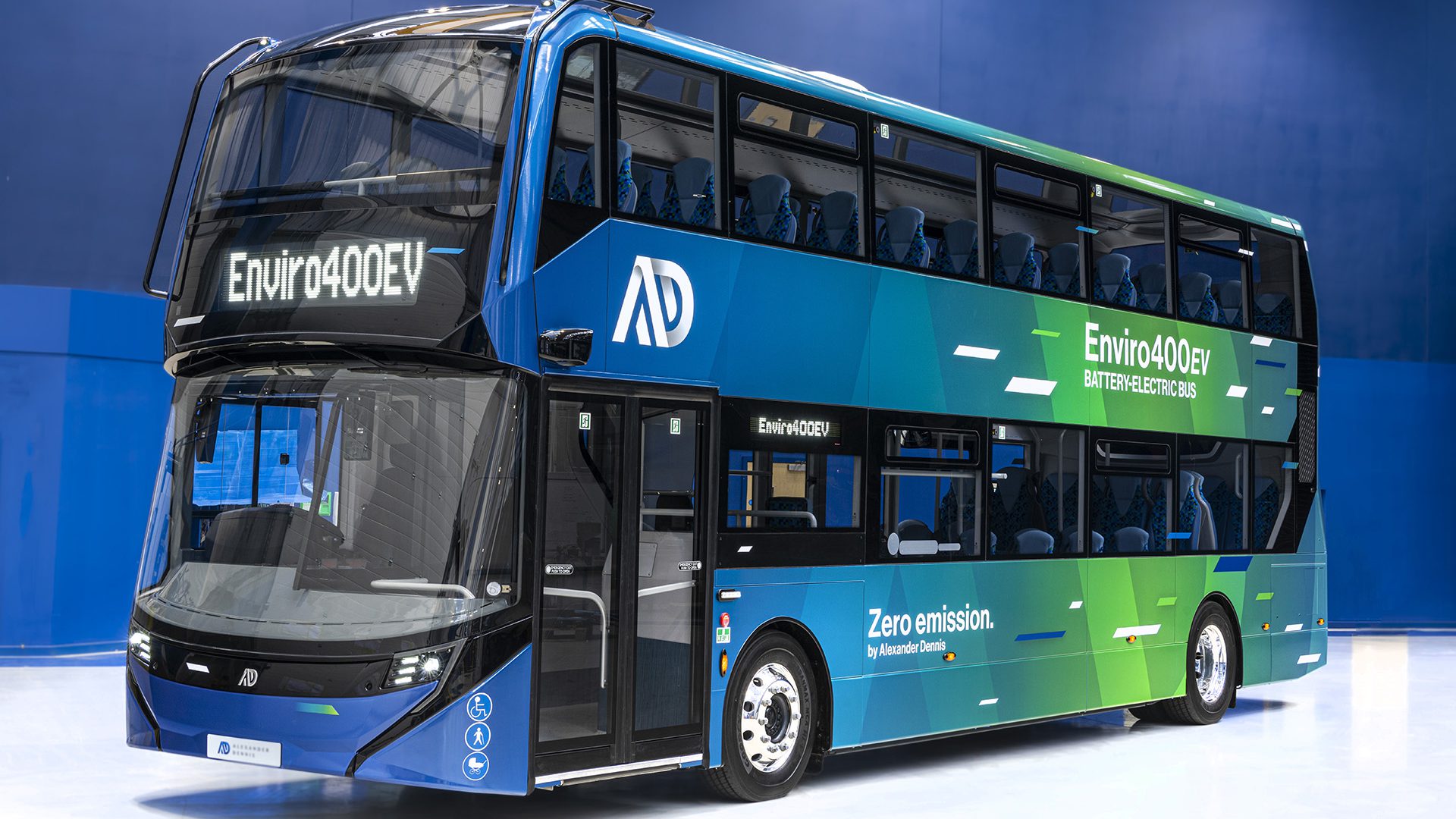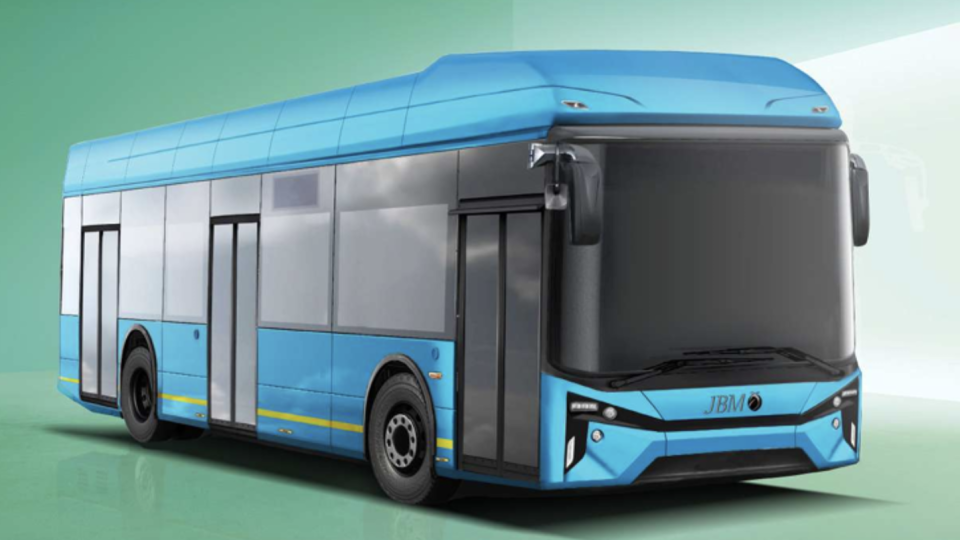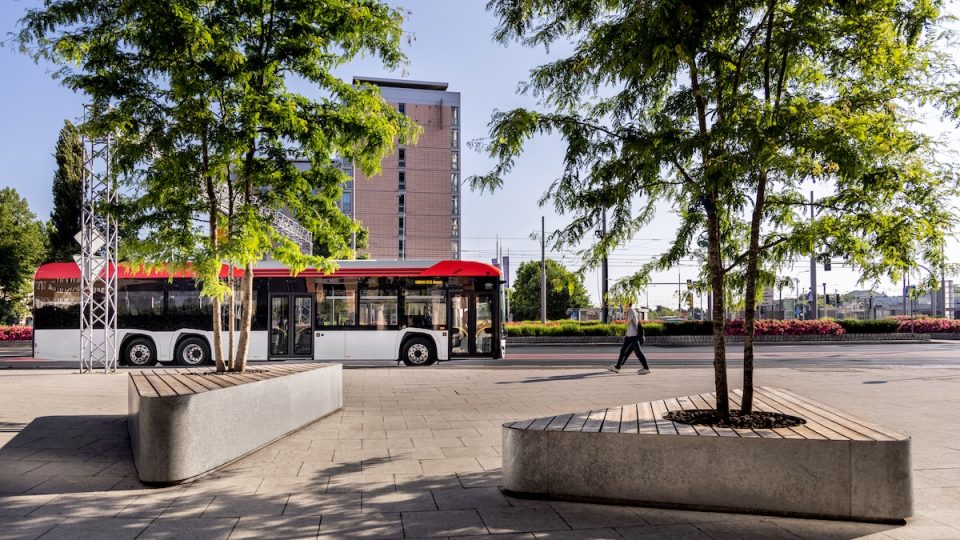ADL, average energy consumption of just 0.67 kW/km for the Enviro400EV
Record fuel consumption for the new generation of the Alexander Dennis Enviro400EV, which completed the Zemo Partnership’s zero-emission bus testing and certification program with an energy consumption of only 0.67 kWh/km. A figure that actually makes it the most efficient electric double-decker tested to date according to Zemo Partnership standards, by about ten percentage points […]

Record fuel consumption for the new generation of the Alexander Dennis Enviro400EV, which completed the Zemo Partnership’s zero-emission bus testing and certification program with an energy consumption of only 0.67 kWh/km. A figure that actually makes it the most efficient electric double-decker tested to date according to Zemo Partnership standards, by about ten percentage points compared to similar models, thanks to the Voith e-powertrain.
Combined with the battery system, supplied by Impact Clean Power Technology and allowing 88 percent of its 472kWh capacity to be used, the UK Bus Cycle’s 0.67kWh/km energy consumption gives the double-decker electric bus an extraordinary 620km range, on a single charge.
The Zemo Partnership certifies vehicles following independent physical testing to ensure public money such as the UK Government’s Zero-Emission Regional Bus Areas (ZEBRA) or the Scottish Government’s Zero Emission Bus Challenge Fund (ScotZEB) supports proven zero-emission vehicle technologies that will perform in service. The certificates provide an independent means for operators to compare different suppliers and technologies on a like-for-like basis.

Alexander Dennis Group Engineering Director, Chris Gall, said: «Our next-generation Enviro400EV’s energy efficiency of 0.67kWh/km sets a new benchmark and is testament to Alexander Dennis’s lineage and strength in designing innovative products meeting the needs of the UK bus industry. “The result demonstrates not just to the expertise of our fantastic engineering team who designed and developed the bus – it also confirms the efficacy of the system of zero-emission bus testing overseen by the Zemo Partnership. The process encourages us and our fellow UK manufacturers to continually raise the bar, bringing down customers’ operating costs through reduced energy consumption and ensuring the transition to zero-emission technology is both sustainable and profitable».
Over 150 next-generation Alexander Dennis Enviro400EV have been sold to date to customers including Stagecoach and Transdev, with deliveries of the first completed vehicles now imminent.







